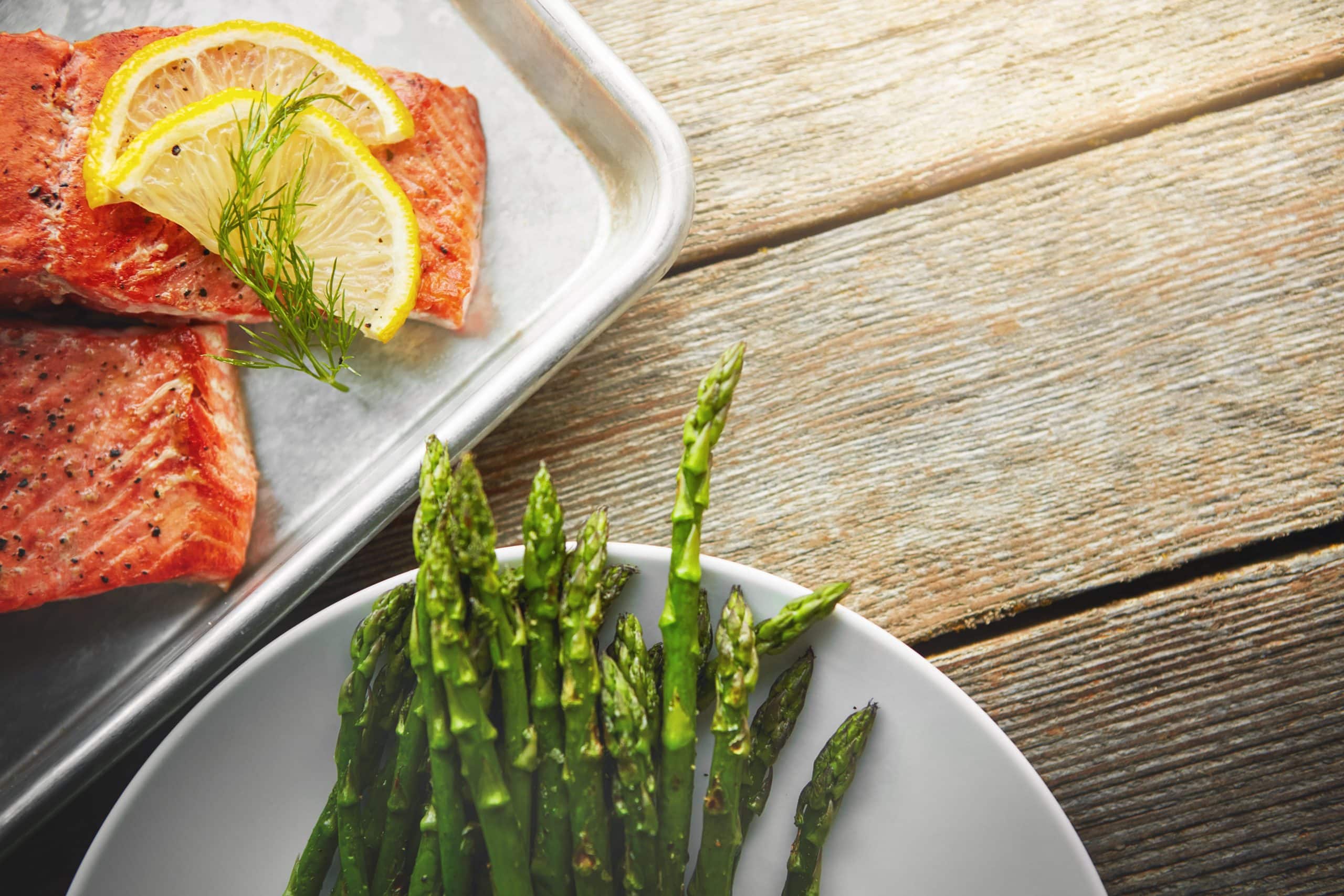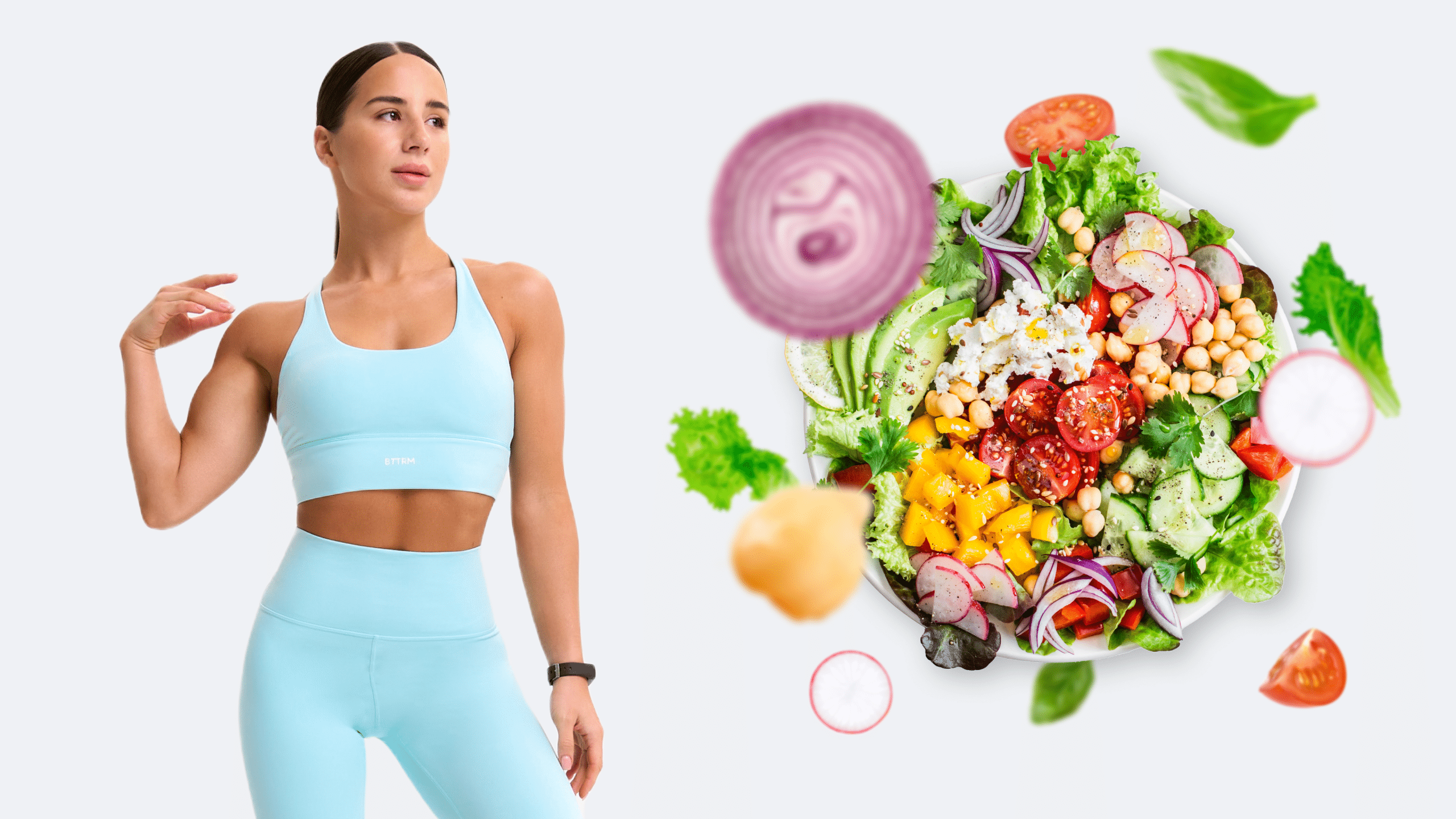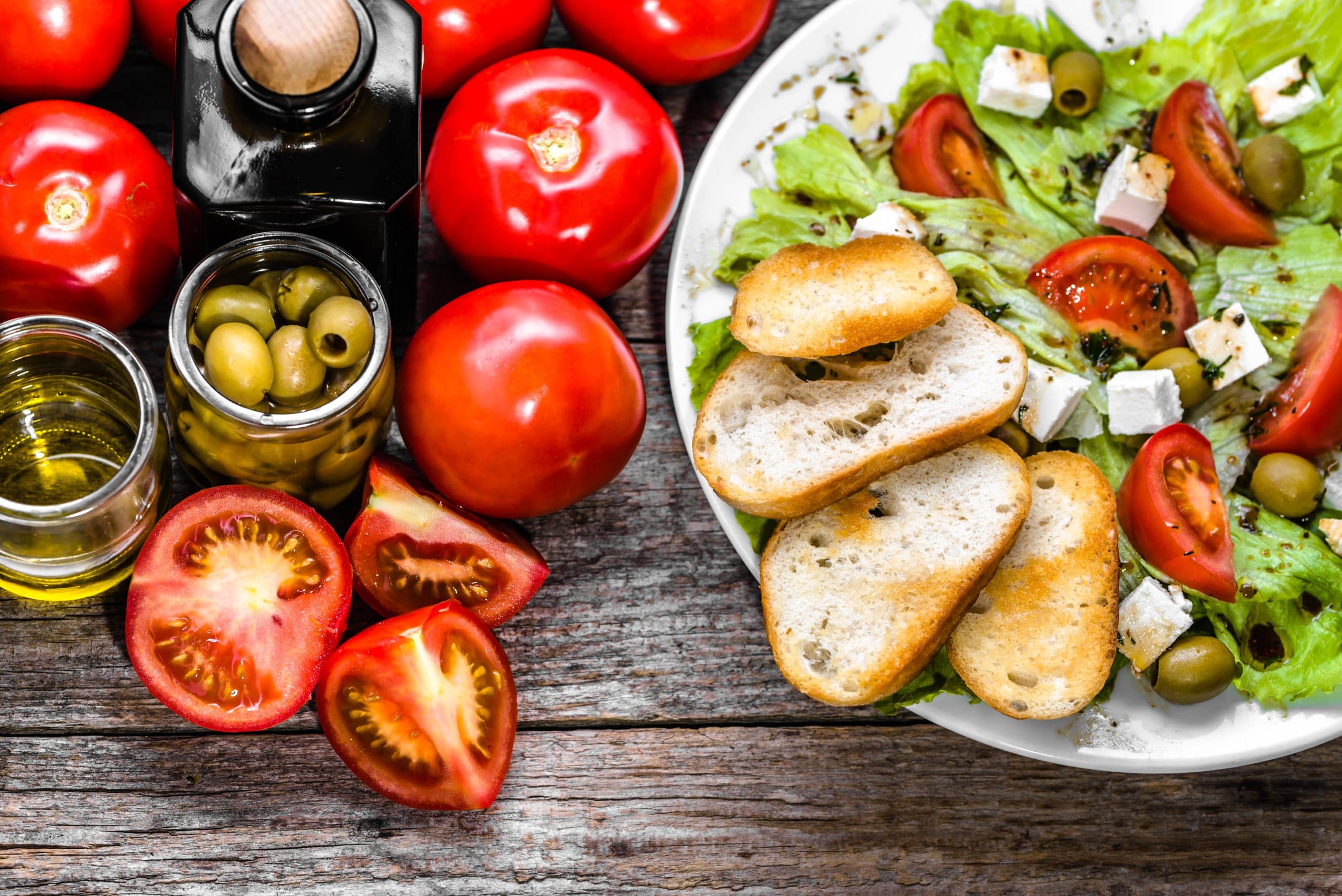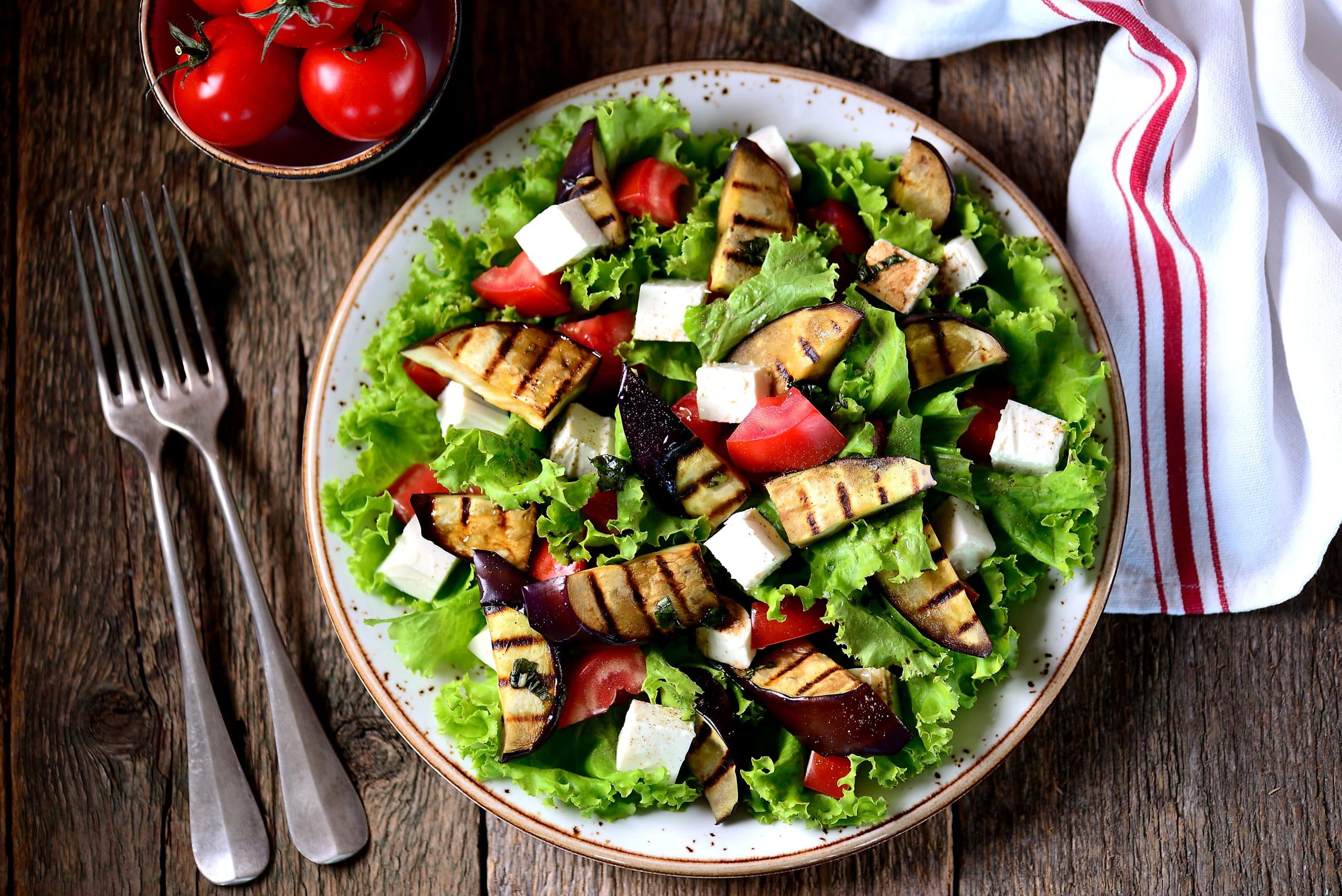You don’t need to live in Spain, Italy, Greece, France, or any other Mediterranean country to try healthy Mediterranean recipes. You can reap the benefits wherever you are in the world, so long as you know the foundational foods of these recipes.
In this article, you’ll get to know more about these recipes, the main foods to include and ones to moderate, and example recipes you can try in the comfort of your home.
Before we proceed, it’s important to note that studies have confirmed the Mediterranean diet as a healthy diet with many benefits. Some of the health benefits of the foods in the Mediterranean diet are that they may help prevent cardiovascular disease and help with weight loss (2).
In our previous post, we discussed in detail the health benefits of the Mediterranean diet that you also need to know. Just to highlight, this dietary pattern may be beneficial in a number of ways, including the following:
- Helps reduce the risk of heart disease.
- Lowers the levels of LDL (bad) cholesterol.
- Helps support cognitive function.
- Contributes to better health of the bones.
- Helps lower the risk of type 2 diabetes.
- Good for weight management and also lowers the risk of obesity.
What Are the Most Healthy Mediterranean Recipes?
It’s difficult to tell which recipe is healthier than others when it comes to Mediterranean recipes. This is because most of these recipes are healthy and come with many health benefits that vary from one recipe to another. Therefore, with hundreds or thousands of cuisines available in this category, we cannot single out one as being healthier than another. The Mediterranean diet in general is a healthy way of eating, and can include many different recipes, flavors, and ingredients from other cuisines, as long as the basic dietary pattern is followed.
2 Easy Mediterranean Recipes You Can Try
If you’re on a Mediterranean diet and are looking for a healthy recipe you can try in this category, I have sampled these two options that I think would be a great deal for your health.
Simple Greek Salad with Feta and Olives
Greek salad is renowned not only in Greece, but all over the world. There are different versions and, in this recipe, I will show you how to make a simple Greek salad with feta and olives. It’s easy to make and you can try it at home.
- Serving: 8 people
- Prep Time: 15 minutes
- Cuisine: Greek
Ingredients
- 6 teaspoons of virgin olive oil
- 4 cups of halved cherry tomatoes
- 2 thinly sliced red onions
- 400g of crumbled feta cheese
- 2 cups of pitted kalamata olives
- 8 cups of diced cucumbers
- 2 teaspoons of red wine vinegar
- Salt and pepper to taste
- Parsley or fresh oregano for garnishing
Steps
- Put the kalamata olives, cucumbers, tomatoes, and red onions together in a large bowl.
- Mix the olive oil, red wine vinegar, salt, and pepper in a smaller bowl, then whisk them together to make a dressing.
- Pour the dressing over the salad you prepared in the large bowl and toss gently to combine.
- Sprinkle with crumbled feta cheese and then garnish using parsley or fresh oregano.
- Your salad is ready to serve.
Whether you’re looking to simply pep up your fitness routine, jazz up your diet with mouth-watering low-calorie recipes or want to get your act together and significantly drop that number on your scale – BetterMe: Health Coaching app has got you covered! Improve your body and revamp your life!
Mediterranean Baked Fish with Lemon and Herbs
Another Mediterranean recipe that I have chosen is baked fish with lemons and herbs. If you’re looking for a Mediterranean recipe with healthy proteins, you ought to try this. It’s simple and easy to make.
- Servings: 2 people
- Prep Time: 10 minutes
- Cooking Time: 20 minutes
- Total Time: 30 Minutes
- Cuisine: Italian
Ingredients
- 2 white fish filets
- 1/8 cup of chopped fresh dill
- 1 thinly sliced lemon
- 2 minced garlic cloves
- 1 teaspoon of drained capers
- 1/8 cup of extra virgin oil
- 1/8 cup of freshly chopped parsley
- Salt and pepper to taste
Steps
- Preheat your oven up to 375°F.
- Put the two white fish filets on a baking tray and sprinkle with extra virgin olive oil, then add salt and pepper to season.
- Add chopped parsley, minced garlic cloves, chopped dill, and capers over the fish filets.
- Arrange the lemon slices on top of the filets.
- Bake in the oven for about 20 minutes or just until it flakes easily.
- Ready to serve.
Is Mediterranean Food Healthy for Weight Loss?
Yes, Mediterranean food is healthy for weight loss. Studies have confirmed that Mediterranean diets can be healthy and effective for weight loss and management in comparison to other diets (5).
Read more: Vegetarian Mediterranean Diet: Your Blueprint for Daily Wellness
What Are the Top 10 Foods in a Mediterranean Diet?
A Mediterranean diet comprises mostly plant-based foods that form the foundation with moderate amounts of eggs, dairy, poultry, and seafood, with limited processed foods, and red meat. Some of the foundational foods or ones that are highly emphasized include leafy greens, tomatoes, olive oil, legumes, whole grains, nuts and seeds, herbs and spices, berries, yogurt, and fatty fish.
Leafy Greens
Leafy greens are considered for their numerous health benefits. They are an excellent source of vitamins, antioxidants, and minerals. Some popular leafy greens for the Mediterranean diet include spinach, collard greens, kale, arugula, and romaine lettuce.
Tomatoes
Tomatoes are a common ingredient in many recipes or diets. They’re useful when it comes to making sauces, soups, sandwiches, and salads. In addition to the versatile nature of tomatoes, they offer numerous health benefits due to their richness in antioxidants such as lycopene, and nutrients such as vitamin C (7).
Lycopene is an antioxidant that has been linked to protective effects against chronic diseases such as heart disease and certain types of cancer. Of course, there are numerous other benefits that come with tomato nutrients.
Olive Oil
The Mediterranean diet uses olive oil as a fundamental ingredient. This oil is rich in healthy fats and antioxidants and offers many potential health benefits. Being rich in monounsaturated fatty acids (MUFAs), it can help lower bad (LDL) cholesterol and reduce the risk of cardiovascular diseases, particularly when it replaces saturated fats in your diet (3).
There are a number of ways you can use olive oil in your diet. You can add it as a dressing to your salads, use it for cooking, or drizzle it over roasted vegetables.
Legumes
Legumes such as beans, peas, soybeans, and lentils are a good source of plant proteins. They are also rich in fiber, in addition to other important nutrients such as magnesium, phosphorus, B vitamins, iron, zinc, and complex carbohydrates (4).
The nutritional composition of legumes makes them great for heart health and weight management. In addition, they can help moderate blood sugar levels.
When it comes to eating legumes, you can add cooked legumes to salads, eat them as a side dish, or use them to make soups and stews. If you’re a vegan or vegetarian, you can eat legumes as a substitute for meat.
Whole Grains
Some of the whole grains that form part of a Mediterranean diet include whole wheat, quinoa, and barley. They’re rich in dietary fiber and B-group vitamins, among other nutrients (6). Eating whole grains comes with a number of health benefits that include reducing the risk of type 2 diabetes, promoting good digestive health, and reducing the risk of cardiovascular diseases (8).
Nuts and Seeds
Nuts and seeds provide healthy fats, fiber, proteins, vitamins, and minerals that are essential for overall health and well-being. Eating nuts and seeds has been linked to reducing the risk of (or death from) cardiovascular disease and diabetes, among other diseases (1).
They include almonds, cashews, walnuts, sunflower seeds, and chia seeds. You can enjoy them as a breakfast snack, incorporate them into other dishes, or add them to your salads.
Fruits
Fruits such as berries, oranges, grapes, apples, melons, and figs are some of the options for a healthy Mediterranean recipe. Most of these fruits are rich in different types of vitamins, antioxidants, and other nutrients that make them good for different health conditions.
You can eat whole fruits, incorporate them in your smoothies, or make fruit salads, depending on the fruit.
Herbs and Spices
Some of the herbs and spices you can include in your vegetarian Mediterranean diet include parsley, oregano, thyme, garlic, and basil. These herbs and spices are good for spicing and flavoring your dishes and also provide a great source of antioxidants, vitamins, and minerals that are great for your health.
Dairy
You can also include dairy products such as yogurt and cheese in your Mediterranean recipe, but only in moderation.
Fatty Fish and Seafood
If you want to benefit from omega-3 fatty acids, then you can include fatty fish or seafood in your recipe. Salmon, shrimp, tuna, mackerel, and sardines are some of the examples to consider. It is also important to add them in moderate amounts.
Want to spring-clean your diet, skyrocket your self-confidence, and shatter your insecurities? Check out the BetterMe: Health Coaching app and set this plan in motion!
What Is the Healthiest Mediterranean Food?
There is no single food that we can say is healthier than any other in regards to Mediterranean foods. Of course, a Mediterranean dietary pattern in general is healthy, but that doesn’t mean you have to use specific Mediterranean foods or flavors. It’s the dietary pattern that’s important – mostly plant-based with lots of fruits, vegetables, legumes, whole grains, and healthy fats, with moderate amounts of eggs, poultry, dairy, and seafood.
What Is Not Allowed on a Mediterranean Diet?
Ultra-processed foods, sugary foods and beverages, and fast foods are not encouraged on a Mediterranean diet. Red meat may be enjoyed occasionally, but not too often. Seafood, dairy, eggs, and poultry can be included regularly, but only in moderation. The overall diet should be mostly plant-based.
What Is a Typical Mediterranean Breakfast?
A typical Mediterranean breakfast can vary depending on the Mediterranean country. For example, Greek yogurt with toppings of honey and nuts could be a typical breakfast in Greece while fresh orange juice or strong coffee could be a typical breakfast in Spain. Therefore, a typical Mediterranean breakfast can vary from one country to another or even from one individual to another.
Read more: Mediterranean Diet Desserts: The Best Treats for Sweets Lovers
FAQs
Is Greek and Mediterranean food the same thing?
No, Greek food is a Mediterranean cuisine but not necessarily the same as Mediterranean food, although they have a lot of similarities regarding the ingredients used. Greek food is specific to Greece that borders the Mediterranean, just like other countries such as Italy, Turkey, Lebanon, and Spain. Mediterranean food refers to cuisines from all of these countries.
Can you eat potatoes on a Mediterranean diet?
Yes, you can eat potatoes on a Mediterranean diet. They are a starchy vegetable and a healthy source of complex carbohydrates, in addition to other nutrients such as potassium. In some Mediterranean cuisines, it is common to roast potatoes with olive oil and fresh herbs.
How many eggs should you eat on a Mediterranean diet?
There is no specific number of eggs that you should eat while on a Mediterranean diet, but the key is to practice moderation. Some people limit egg consumption to a few times a week while others eat them more frequently. However, it’s important to moderate the amount as they are not the main food of this diet.
Which Mediterranean country has the healthiest food?
It’s not easy to single out a Mediterranean country as having the healthiest food as each country that borders the Mediterranean boasts of different healthy cuisines. However, they mostly follow a similar general healthy eating pattern.
The Bottom Line
To summarize, you have seen that there are many healthy Mediterranean recipes you can try from different Mediterranean countries. Whether from Greece, Italy, Spain, Turkey, France, or Lebanon, you have a lot to learn from the different Mediterranean cuisines of these countries depending on what you love or what you want to try for your breakfast or dinner.
Mediterranean diets are preferred for their nutritious value and their many health benefits. As previously mentioned, they’re known to be promising for reducing the risk of cardiovascular disease and diabetes and for weight management, among other benefits.
DISCLAIMER:
This article is intended for general informational purposes only and does not serve to address individual circumstances. It is not a substitute for professional advice or help and should not be relied on for making any kind of decision-making. Any action taken as a direct or indirect result of the information in this article is entirely at your own risk and is your sole responsibility.
BetterMe, its content staff, and its medical advisors accept no responsibility for inaccuracies, errors, misstatements, inconsistencies, or omissions and specifically disclaim any liability, loss or risk, personal, professional or otherwise, which may be incurred as a consequence, directly or indirectly, of the use and/or application of any content.
You should always seek the advice of your physician or other qualified health provider with any questions you may have regarding a medical condition or your specific situation. Never disregard professional medical advice or delay seeking it because of BetterMe content. If you suspect or think you may have a medical emergency, call your doctor.
SOURCES
- Consumption of Nuts and Seeds and Health Outcomes Including Cardiovascular Disease, Diabetes and Metabolic Disease, Cancer, and Mortality: An Umbrella Review (2022, ncbi.nlm.nih.gov).
- Diet Review: Mediterranean Diet (n.d., nutritionsource.hsph.harvard.edu).
- Is Extra-Virgin Olive Oil Extra Healthy? (2024, health.harvard.edu).
- Legumes and Common Beans in Sustainable Diets: Nutritional Quality, Environmental Benefits, Spread and Use in Food Preparations (2024, ncbi.nlm.nih.gov).
- Mediterranean Diet in The Management and Prevention of Obesity (2023, sciencedirect.com).
- Nutritional Value of Whole Grains (2021, knowledge4policy.ec.europa.eu).
- Tomatoes: An Extensive Review of the Associated Health Impacts of Tomatoes and Factors That Can Affect Their Cultivation (2022, ncbi.nlm.nih.gov).
- Whole Grains (n.d., nutritionsource.hsph.harvard.edu).










